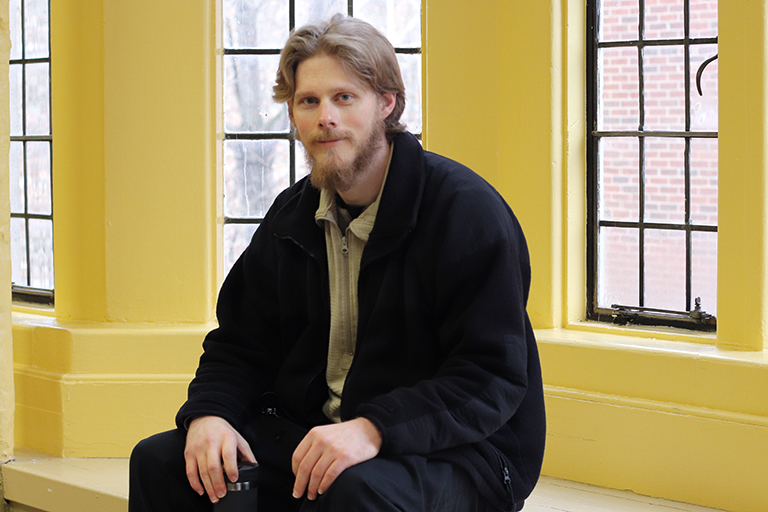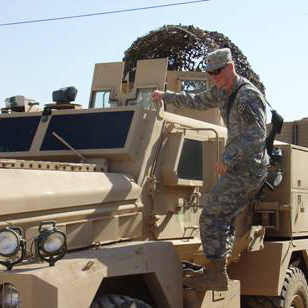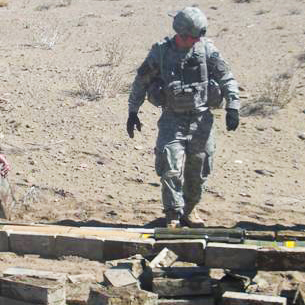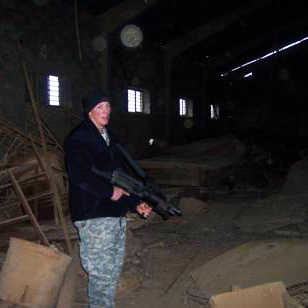Jason Matheny’s Military Experience Set Him Apart as an Undergraduate in Nuclear Engineering

In March 2007, nuclear engineering senior Jason Matheny read an article about plans for the National Ignition Facility. The article discussed the approach of inertial confinement fusion using 192 powerful laser beams to compress and fuse deuterium and tritium, which was being implemented at Lawrence Livermore National Lab in an effort to develop a method to produce clean fusion energy. Matheny was serving in the Army, but reading this story sparked his interest in nuclear science, and he sought a way to learn more.
“I thought it was fascinating how a bunch of scientists and engineers worked together to build this really large facility to have lasers hit a target the size of a pencil eraser in an attempt to gain energy from fusion,” he said. “This scientific effort reaching closer to a goal of obtaining clean fusion energy for a better world was exciting to me.”
For eight of his ten years of service, which included deployments to Iraq and Afghanistan, Matheny worked as an explosive ordnance disposal tech—the military’s version of a bomb squad—earning two Bronze Stars along the way.
Matheny worked with robotic platforms to help mitigate explosive hazards. He also gained knowledge of the chemistry behind common homemade explosives as well as the circuits used in improvised explosive devices. He learned first-hand that the skills to render explosive hazards safe—both conventional and improvised—requires a great deal of problem-solving.
- Jason Matheny prepares a Joint EOD Rapid Response Vehicle in Iraq.
- Jason Matheny arranges various explosive material to blow up while in Afghanistan.
- Jason Matheny in Iraq.
This rigorous study paid off for him, and Matheny went to work at the Combined Explosives Exploitation Cell in Iraq where all explosives-related evidence was processed for biometric and electronic information.
Matheny’s military experience gave him special insight into homeland security issues, while he gained national security experience through secret service support for both Presidents Bush and Obama, Vice President Biden, and presidential candidates in 2008.
—Jason Matheny
Drawn to UT’s top-ranked Department of Nuclear Engineering for both its reputation and proximity to Oak Ridge National Laboratory, he applied and was accepted.
His past experiences helped him stand out as an undergraduate student, and he even took two graduate level courses in nuclear security. Once, he even corrected an equation posted by Professor Ivan Maldonado.
“Jason is an outstanding student, very alert and well prepared,” said Maldonado. “He consistently scored near or at the top of my reactor physics class, and on occasion, he even identified errors in some of the equations on my slides.”
Matheny completed two summer internships at Los Alamos National Laboratory (LANL) where he studied nuclear security and nonproliferation issues as well as gamma spectroscopy and neutron noise techniques associated with neutron multiplicity counting.
Additionally, Matheny studied abroad on the department’s annual trip to Prague where he and other students performed lab experiments at the VR-1 reactor at the Czech Technical University and visited several sites, including an old uranium mine that may soon be turned into a geological repository for nuclear waste.
“These internships have helped give me an idea of what I could focus on in graduate school and what I could potentially do to help with emergency nuclear response operations in the future,” Matheny said.
With goals of working in nuclear security, Matheny intends to continue his education in graduate school. While he’s applying to schools, he has already lined up another summer internship at LANL to keep that relationship going strong. Perhaps, if he hadn’t read that initial article twelve years ago that sparked his interest, maybe he wouldn’t have found a passion for nuclear engineering. Even though he was interested in reading about the science, he didn’t know that he would have what it takes to succeed academically. Now, UT has given him the confidence and education to know he can make a difference.
Contact
Élan Young: elan@tennessee.edu


